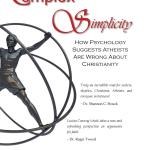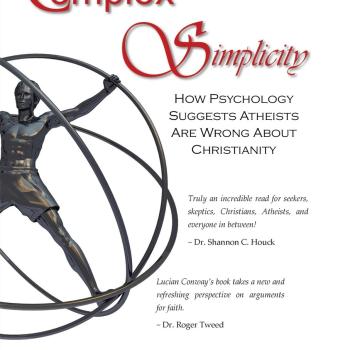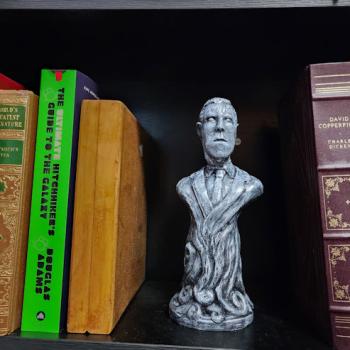
The 2024 book Devout by first-time published author Anna Gazmarian is an autobiography exploring her journey of doubt and discovery through the faith of her childhood in light of her struggles with mental illness. While the book is entirely autobiographical, with no overt attempts to draw lessons or meaning which might be applicable to the reader, it does follow three themes: faith, mental illness, and creative writing.
Synopsis
Anna grew up in the church, but as she began to experience swings in emotion and difficulty with focus or drive to accomplish everyday tasks, she sought out counseling. At first, she went to the church for counseling, and was given the sorts of trite and reductive answers one expects from a church: her problems were spiritual. She needed to read her Bible and pray. Counselors and well-meaning church members would pray over her or offer scriptures of encouragement. But none of it seemed to help, and it all became a bit cloying and cliché for her.
Seeking out professional help, Anna was diagnosed with a form of bipolar disorder. She was placed on a regimen of medications, all of which would work for a time before her manic and depressive symptoms would break through and she would be back in the same spot.
Anna ended up moving from place to place in her home state of North Carolina, pursuing higher education at various places, meeting and then losing friends and romantic partners. During this transient period, she became less and less interested in finding church environments. However, upon attending a church during one of her more steady periods of life, she met her future husband. She was drawn to him and initiated a creative and indirect kind of flirtation. It took some time, but the two of them began hanging out, then dating, and eventually marrying.
Her new life of matrimony did not overcome her mental health struggles, and it turned out that her husband had a few depressive symptoms of his own. But the two of them continued to support one another, and he found work sufficient to send her to college.
In college, she pursued courses in creative writing and poetry, and this deep interest in writing and poetry became central to her identity such that her identity tiers went something like: Poet, then Student, then Bipolar, then Wife, with her identity as Christian taking a back seat.
However, early in their marriage, she and her husband found a church whose ministers and many members also suffered from mental health conditions. The church spoke of mental health very openly, and was very welcoming and supportive to members who suffered as they did. It was within this environment that Anna finally found a spiritual home, and her poetry and writing began to drift their focus back toward her Christian roots.
Anna eventually found more stabilizing treatment and though, while not cured of her difficulties, was much better off than she had been for most of her life.
The story ends with some news for her and her husband which brought both joy and challenges for their shared future.
Impressions
I am a researcher of Christian conversion and deconversion. While this book was broadly adjacent to my area of research, it doesn’t actually contain any conversion or deconversion. Growing up in the church, as so many Christians do, Anna never undergoes a deeply significant conversion experience, and instead struggles and eventually finds a form of faith-practice as well as a religious community which best suits her emotional and spiritual needs.
While she alludes to something akin to “spiritual abuse,” this area of her story got buried in all of the biographical details such as her search for viable medical treatments, her experiences in higher education, her dating life, and eventually her marriage and pregnancy.
Despite her rather severe mental health struggles, the story follows an upward trajectory with a happy ending, wherein she expresses deep content with her husband, child, and personal Christian faith.
There is nothing approaching a full deconversion, or even necessarily “deconstruction” in the popular religious sense of that word.
The spiritual struggle in this book seems to be primarily about the church’s inability to appropriately address her mental health needs, with various members trying to lob trite snippets of scripture at her, console her with tired Christian clichés, and generally fail to support her in ways she found to be helpful.
Worth mentioning, however, is that her impression of the church was at its worst when her mental health was at its most unstable. As various treatments gradually stabilized her mental health near the end of the book, her relationship with her new church and her idea of faith also stabilized. This is not an attempt to let the church in which she started off the hook, but from an empirical standpoint, it is difficult to determine how much of her struggle was directly inflicted by the church versus the perception of the world through the lens of her neurological condition.
The church in which she finds herself at home near the end of the story places a heavy emphasis on mental health, with many of the members struggling with various mental health difficulties of their own, sharing their struggles and supporting one another in the process.
The book’s author has her degree in creative writing (a topic explored extensively in the story) which is probably the impetus for her to write the book in the first place.
As for her religious journey, she appears to have begun in a generally fundamentalist southern church and ended in a heterodox, modernized, non-denominational church.
How is the Book?
As the holder of a degree in creative writing, Anna writes in a relatable, readable, and very genuine way. The book is probably best suited to a Christian audience, especially those who have undergone some disappointment or frustration with their church, or with people who have suffered mental health challenges in their own lives.
Unlike many of the autobiographies I have read on the subject of faith struggles, Anna’s does not contain a tone of bitterness or accusation. Also unlike other books of its kind, this script ends on a positive and very hopeful note, making it not merely a pleasant read, but also an uplifting read as well. The book is something of a personal theodicy, wherein a struggling Christian has to directly confront and struggle with the difficulties of the real world and reconcile them with her religious beliefs.
Anna’s book is not overly long, nor is it preachy (either in favor of or against Christianity), making it a quick and comfortable read.














